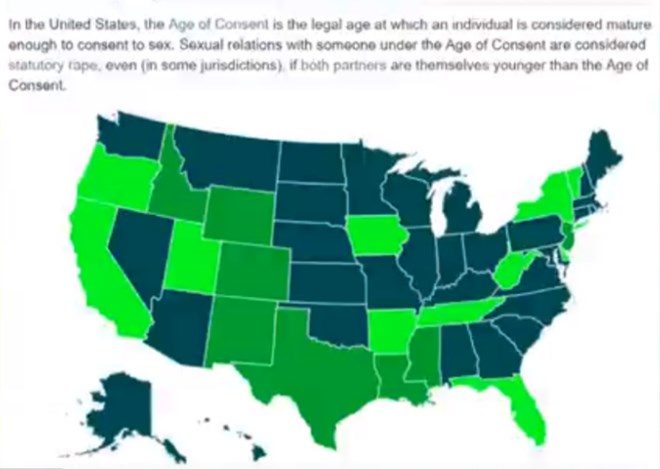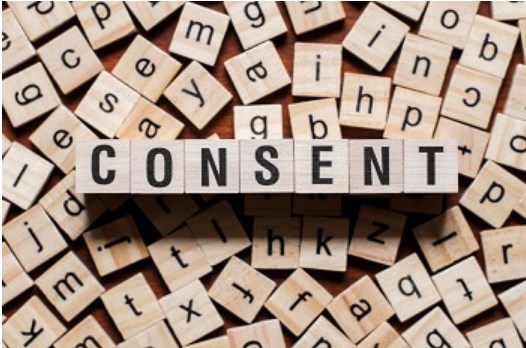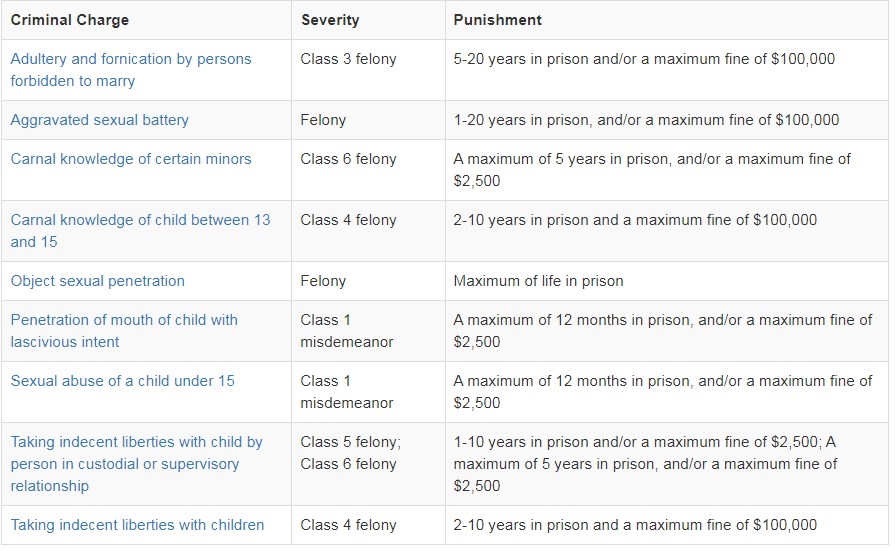Understanding Sexual Consent Laws and the Virginia Legal Age of Consent in the Commonwealth
The #MeToo movement has profoundly impacted societal perceptions of sexual misconduct and consent. Emerging in late 2017, the movement has empowered countless individuals to share their experiences of sexual harassment and assault, sparking a global conversation about the need for clear and enforceable consent laws. It has highlighted the importance of unequivocal, affirmative consent in all sexual encounters, pushing for reforms and greater awareness. This movement has also underscored the necessity of understanding consent not just as a personal and ethical issue but as a crucial legal standard that varies across different jurisdictions, including the Virginia legal age of consent.
Given the heightened awareness and sensitivity around issues of consent, it is imperative for individuals to familiarize themselves with the specific laws governing consent in their area. Local laws on sexual consent can differ significantly from one place to another, encompassing various definitions, age requirements, and conditions under which consent cannot be legally given. Understanding these nuances is essential for ensuring that one’s actions are respectful and lawful. It is particularly critical in avoiding situations that might lead to accusations of sex crimes, which can have severe legal and personal repercussions. Awareness of local laws helps in promoting respectful relationships and protecting the rights and dignity of all parties involved.
This article aims to provide a comprehensive guide to understanding how Virginia defines consent. In the wake of the #MeToo movement, many are seeking clarity on what constitutes legal consent and the circumstances under which consent cannot be given. This guide will explore the legal framework of consent in Virginia, the key factors that indicate the absence of consent, and the specific age-related consent laws. It will also offer practical advice on what steps to take if accused of a sex crime involving consent in Virginia, emphasizing the importance of seeking experienced legal counsel. Through this detailed exploration, the article intends to educate and inform, helping readers navigate the complex legal landscape of consent.
I. Legal Framework for Sexual Consent in Virginia
A. General Overview
Virginia’s legal framework regarding sexual consent is designed to protect individuals from non-consensual sexual activities and ensure justice for victims of sexual crimes. Understanding this framework is crucial for both preventing and addressing instances of sexual misconduct.
1. Non-consensual Sexual Activity is Illegal
In Virginia, any sexual activity that occurs without the clear, affirmative consent of both parties involved is considered illegal. Consent must be given freely and willingly, without any form of coercion, force, or intimidation. The law categorically states that non-consensual sexual activity is a crime, punishable by severe legal consequences. This foundational principle underpins Virginia’s commitment to protecting individuals’ autonomy and bodily integrity.
2. Types of Sex Crimes Related to Lack of Consent
Several specific crimes fall under the umbrella of non-consensual sexual activity in Virginia. These include:
- Rape: Defined as non-consensual sexual intercourse accomplished through force, threat, or intimidation.
- Forcible Sodomy: Involves oral or anal sexual contact without consent, achieved through force or intimidation.
- Sexual Object Penetration: Non-consensual penetration of the vagina or anus with any object, using force or intimidation.
- Aggravated Sexual Battery: Occurs when a person sexually abuses another using force, threat, or intimidation, or if the victim is underage, incapacitated, or disabled.
Each of these crimes carries significant penalties, including lengthy prison sentences, hefty fines, and a permanent criminal record.
B. Absence of Specific Statutory Definition
One unique aspect of Virginia’s consent laws is the absence of a specific statutory definition of consent. Instead, the law relies on established legal interpretations and contextual assessments to determine whether consent was present in a given situation.
1. General Understanding vs. Legal Interpretation
While the general understanding of consent involves a mutual agreement between parties to engage in sexual activity, legal interpretation requires a more nuanced analysis. In Virginia, consent is evaluated based on the circumstances surrounding the interaction. Factors such as the presence of force, threats, or intimidation, as well as the mental and physical state of the individuals involved, play a critical role in legal determinations.
2. Situations Where Consent is Not Present
Virginia law explicitly outlines several situations where consent cannot legally be given, regardless of any apparent agreement:
- Physical Force: If one party uses physical force to compel the other to engage in sexual activity, consent is deemed absent.
- Threats and Intimidation: When consent is obtained through threats or intimidation, it is considered invalid. This includes any form of coercion that places the victim in fear of harm.
- Age, Mental Capacity, or Physical Disability: Individuals who are underage, mentally incapacitated, or physically disabled are deemed incapable of providing valid consent. This includes minors below the age of consent, individuals with significant cognitive impairments, and those who are physically unable to resist due to disability or incapacitation.
- Intoxication: If an individual is intoxicated to the point of being unable to understand the nature of the sexual activity or to resist it, they cannot provide consent. This applies to both alcohol and drug intoxication, whether voluntary or involuntary.
In summary, Virginia’s legal framework for sexual consent emphasizes the protection of individuals from non-consensual sexual activities through a thorough examination of the context and circumstances. By understanding these laws, individuals can better navigate their interactions and ensure they respect the rights and autonomy of others.
II. Key Factors Indicating Lack of Consent
Understanding the key factors that indicate a lack of consent is crucial for comprehending how Virginia law addresses and adjudicates cases of sexual misconduct. These factors help determine whether the sexual activity was consensual or if it was coerced or forced, thus constituting a criminal offense.
A. Physical Force
Physical force is a clear and unequivocal indicator of non-consensual sexual activity. It involves the use of bodily power to compel another person to engage in sexual acts against their will.
1. Definition and Examples
Physical force is defined as any bodily action that overpowers or coerces someone into sexual activity. Examples include:
- Restraint: Holding down or physically restraining someone to prevent them from leaving or resisting.
- Hitting or Beating: Using violence to subdue or intimidate the victim into submission.
- Use of Weapons: Threatening or inflicting harm with a weapon to force compliance.
2. Legal Consequences
Engaging in sexual activity through physical force is a severe crime with significant legal repercussions. Offenders can be charged with rape, forcible sodomy, or aggravated sexual battery, among other offenses. Convictions often result in lengthy prison sentences, substantial fines, mandatory registration as a sex offender, and long-term societal stigma.
B. Threats and Intimidation
Threats and intimidation involve the use of fear to coerce someone into sexual acts. This can be psychological rather than physical but is equally coercive and criminal.
1. Understanding Threats in Sexual Context
Threats in a sexual context include:
- Verbal Threats: Explicit statements promising harm if the victim does not comply.
- Psychological Coercion: Implied threats that create a fear of consequences, such as threats to harm loved ones, ruin reputations, or cause financial loss.
- Manipulation: Using authority or power dynamics, such as employer over employee or teacher over student, to intimidate the victim into compliance.
2. Legal Implications
Sexual acts obtained through threats or intimidation are illegal and punishable under Virginia law. Perpetrators can face charges similar to those involving physical force, with severe penalties upon conviction. The law recognizes the profound impact of psychological coercion and treats such cases with the gravity they deserve.
C. Incapacity Due to Age, Mental Capacity, or Physical Disability
Incapacity is another critical factor indicating a lack of consent. It refers to situations where individuals are unable to give informed and voluntary consent due to their age, mental condition, or physical state.
1. Definition of Incapacity
Incapacity is categorized into:
- Age: Individuals below the age of consent (15 for intercourse, 18 for other acts) are legally incapable of consenting to sexual activity.
- Mental Capacity: Individuals with cognitive impairments, whether due to developmental disabilities or temporary conditions like intoxication, cannot legally consent.
- Physical Disability: Those who are physically unable to communicate or resist, such as being unconscious or paralyzed, are considered incapacitated.
2. Legal Interpretation of Incapacity
Virginia law interprets incapacity by examining the individual’s ability to understand the nature of the sexual act and their capacity to resist or consent:
- Developmental Disabilities: Permanent conditions affecting cognitive abilities that hinder understanding or consent.
- Intoxication: Temporary impairment due to alcohol or drugs, rendering the individual unable to comprehend or resist the sexual activity.
- Physical Helplessness: States like sleep, unconsciousness, or paralysis where the victim cannot physically respond or resist.
3. Case Examples and Precedents
Legal precedents in Virginia highlight various instances where incapacity has been a decisive factor:
- Case of Intoxication: Convictions where victims were incapacitated due to alcohol or drug consumption.
- Underage Victims: Prosecutions for statutory rape involving minors below the age of consent.
- Disabled Individuals: Cases where physical or mental disabilities prevented valid consent, leading to severe charges and convictions.
In conclusion, recognizing these key factors—physical force, threats and intimidation, and incapacity—is essential for understanding how Virginia defines and prosecutes non-consensual sexual activities. These factors ensure that the law protects individuals’ autonomy and holds offenders accountable for their actions.
III. Detailed Analysis of Incapacity and Intoxication
Incapacity and intoxication are significant factors in determining the presence or absence of consent in sexual activities. Understanding these concepts is crucial for interpreting how Virginia law addresses cases of sexual misconduct.
A. Physical Incapacity
Physical incapacity refers to the inability of an individual to physically participate in or resist sexual activity, often due to unconsciousness, sleep, or other physical limitations.
1. Definitions and Examples
Physical incapacity is defined as a state where a person is unable to realize sexual activity is occurring or unable to physically or vocally resist. Examples include:
- Unconsciousness: When a person is unconscious due to medical conditions or substances, they cannot consent.
- Sleep: An individual who is asleep cannot give conscious, affirmative consent.
- Paralysis or Coma: Those who are paralyzed or in a coma cannot engage in any voluntary physical action, including consent.
2. Legal Standards for Physical Incapacity
Virginia law sets clear standards for physical incapacity:
- Inability to Resist: If an individual is physically unable to resist due to their condition, any sexual activity with them is considered non-consensual.
- Unawareness: If the person is unaware of the sexual activity due to their physical state, it is deemed non-consensual.
The legal implications include severe penalties for those who exploit individuals in such conditions, including charges of rape or sexual assault.
B. Mental Incapacity
Mental incapacity encompasses situations where a person’s cognitive functions are impaired, whether due to developmental disorders, temporary intoxication, or other mental health conditions.
1. Types of Mental Incapacity (Developmental Disorders, Intoxication)
Mental incapacity can be permanent or temporary:
- Developmental Disorders: Conditions such as Down syndrome or severe autism that significantly impair cognitive abilities.
- Intoxication: Temporary impairment due to alcohol or drugs, affecting judgment and decision-making.
2. Impact on Consent
Mental incapacity severely impacts an individual’s ability to consent:
- Understanding Consequences: Individuals with mental incapacity may not comprehend the nature or consequences of the sexual act.
- Decision-Making: Impaired judgment can lead to an inability to make informed decisions about participation in sexual activity.
3. Legal Standards and Case Law
Virginia law evaluates mental incapacity through:
- Cognitive Understanding: Assessing whether the individual can understand the sexual activity and its implications.
- Voluntary Agreement: Determining if the agreement was made without impairment.
Case law in Virginia provides numerous precedents:
- Developmental Disorders: Cases where individuals with significant cognitive impairments were unable to provide valid consent, leading to convictions.
- Intoxication: Instances where intoxicated individuals’ inability to consent resulted in serious charges against perpetrators.
C. Intoxication
Intoxication plays a critical role in consent, particularly when it reaches a level that impairs cognitive and physical functions.
1. Intoxication vs. Incapacity
Intoxication can lead to incapacity, but the two are distinct:
- Intoxication: A temporary state caused by alcohol or drugs.
- Incapacity: A more general term that includes any condition impairing the ability to consent, including severe intoxication.
2. Effects on Ability to Consent
Intoxication affects consent by:
- Impairing Judgment: Alcohol and drugs can cloud judgment, making it difficult to make informed decisions.
- Physical Impairment: High levels of intoxication can incapacitate individuals, rendering them unable to physically resist or verbally consent.
3. Legal Perspectives on Intoxication
Virginia law considers severe intoxication as a valid reason for lack of consent:
- Voluntary vs. Involuntary Intoxication: While both can impair consent, involuntary intoxication (e.g., being drugged without knowledge) is particularly scrutinized.
- Degree of Intoxication: The law assesses the extent to which intoxication impaired the individual’s ability to consent.
Legal precedents highlight the importance of these distinctions:
- Case Examples: Numerous cases where consent was deemed invalid due to the victim’s intoxicated state, leading to convictions for sexual assault and rape.
In conclusion, understanding physical and mental incapacity, along with the nuances of intoxication, is essential for comprehending how consent is evaluated in Virginia. These factors ensure that the law protects those who are unable to protect themselves and holds offenders accountable.
IV. The Age of Consent in Virginia
Understanding the age of consent is crucial for both legal compliance and the protection of young individuals. Virginia has specific laws that define the legal age of consent for various sexual activities, with significant implications for both minors and adults involved.
A. Age of Consent for Intercourse
The age of consent is the legally defined age at which an individual is considered capable of consenting to sexual activities.
1. Current Legal Age (15 Years Old)
In Virginia, the age of consent for sexual intercourse is 15 years old. This means that individuals aged 15 and above can legally engage in consensual sexual activities with others who are also above this age threshold. However, there are important nuances and additional conditions that must be considered to fully understand this law.
2. Legal Implications for Minors and Adults
For individuals aged 15 to 17, sexual activity is legal as long as both parties are within a close age range, often referred to as the “Romeo and Juliet” laws. These laws are designed to prevent the criminalization of consensual sexual relationships between teenagers who are close in age.
For adults (18 and older) engaging in sexual activities with individuals aged 15 to 17, the situation is more complex. Although 15 is the age of consent, adults can still face serious legal consequences if there is a significant age difference, particularly if the adult is in a position of authority over the minor. These cases can lead to charges such as contributing to the delinquency of a minor or corruption of minors.

B. Age Requirements for Other Sexual Acts
Virginia law distinguishes between different types of sexual acts and sets varying age requirements for legal consent.
1. Specific Acts Requiring Consent at 18
Certain sexual acts, such as oral sex (cunnilingus and fellatio) and anal intercourse, require both participants to be at least 18 years old. This higher age requirement is intended to offer greater protection against exploitation and abuse in more intimate or invasive types of sexual activity.
2. Impact on Legal Prosecutions
The differing age requirements for various sexual acts can significantly impact legal prosecutions. Engaging in these acts with someone under 18, even if they are above the age of consent for intercourse, can result in charges of sexual misconduct or statutory rape. This distinction underscores the importance of understanding the specific legal standards for different types of sexual activities.
C. Statutory Rape and Related Charges
Statutory rape laws are designed to protect minors from exploitation and abuse, recognizing that individuals below a certain age cannot legally consent to sexual activities.
1. Definition and Classification
Statutory rape in Virginia occurs when an adult engages in sexual activity with a minor below the age of consent. These laws classify statutory rape as a serious criminal offense, often categorized based on the ages of the victim and the perpetrator and the nature of the sexual activity involved.
- Class 4 Felony: Generally applied when the victim is between 13 and 15 years old, and the offender is an adult.
- Class 6 Felony: In cases where there is a less severe age difference or if the perpetrator is under 18 but still older than the victim.
2. Penalties and Legal Consequences
The penalties for statutory rape and related charges are severe and can include:
- Prison Sentences: Ranging from one to ten years, depending on the severity of the offense and the ages involved.
- Fines: Substantial financial penalties that can accompany prison sentences.
- Sex Offender Registration: Mandatory registration as a sex offender, leading to long-term social and professional consequences.
- Probation and Monitoring: Long-term probation and monitoring, including restrictions on employment and residency.
In conclusion, Virginia’s age of consent laws are designed to protect minors while recognizing the complexity of teenage relationships. Understanding these laws is essential for avoiding severe legal consequences and ensuring the protection of young individuals. These regulations emphasize the importance of consent, age appropriateness, and the safeguarding of minors from exploitation and abuse.
V. Legal Defenses and Options
When facing allegations of sex crimes, understanding the available legal defenses and the importance of effective representation is critical. Several defenses can be employed to challenge the charges, and securing experienced legal counsel is essential to navigate the complexities of such cases.
A. Common Defenses Against Sex Crime Allegations
Facing a sex crime allegation can be daunting, but there are several defenses that individuals can employ to challenge the charges and protect their rights.
1. Consent and Misunderstanding
One of the most common defenses in sex crime cases is the argument of consent. The defendant may assert that the alleged victim willingly participated in the sexual activity. This defense hinges on demonstrating that the consent was clear, voluntary, and informed. Evidence such as text messages, emails, or witness testimonies can be crucial in supporting this claim.
Another related defense is the assertion of misunderstanding. In some cases, the accused may genuinely believe that the victim consented to the activity, but there was a misunderstanding between the parties. This defense focuses on proving that the accused had a reasonable belief that the consent was given, based on the circumstances and interactions between the parties.
2. Evidence and Proof Challenges
Challenging the evidence presented by the prosecution is another vital defense strategy. This can involve:
- Questioning the Credibility of Witnesses: Examining the reliability and consistency of the testimonies provided by the victim and other witnesses.
- Disputing Forensic Evidence: Analyzing and potentially disputing the accuracy and interpretation of forensic evidence such as DNA, fingerprints, or medical examinations.
- Proving Alibi: Demonstrating that the defendant was not present at the scene of the alleged crime through alibi witnesses, surveillance footage, or other forms of proof.
The burden of proof lies with the prosecution, and the defense can exploit any weaknesses or inconsistencies in their case to create reasonable doubt.
B. Importance of Legal Representation
Securing experienced legal representation is paramount when facing sex crime allegations. An adept attorney can significantly influence the outcome of the case.
1. Role of an Experienced Attorney
An experienced attorney plays a multifaceted role in defending against sex crime charges:
- Case Evaluation: Assessing the strengths and weaknesses of the case, including the evidence and charges brought against the defendant.
- Strategic Planning: Developing a robust defense strategy tailored to the specifics of the case and the applicable laws.
- Negotiation: Engaging in plea bargaining with the prosecution to potentially reduce charges or penalties, if applicable.
- Court Representation: Advocating for the defendant in court, presenting evidence, cross-examining witnesses, and arguing legal points effectively.
The attorney’s expertise and knowledge of the legal system are invaluable in ensuring a fair trial and the best possible defense.
2. Navigating Legal Challenges and Defending Rights
Navigating the legal system can be complex and overwhelming, especially in sex crime cases where emotions and reputations are at stake. An experienced attorney can guide the defendant through each step of the legal process, ensuring that their rights are protected and that they receive a fair trial.
- Protecting Constitutional Rights: Ensuring that the defendant’s constitutional rights are upheld, including the right to a fair trial, the right against self-incrimination, and the right to legal counsel.
- Mitigating Consequences: Working to minimize the potential legal and personal consequences of the charges, whether through acquittal, reduced charges, or alternative sentencing options.
- Providing Emotional Support: Offering guidance and support to the defendant and their family throughout the legal proceedings, helping them cope with the stress and uncertainty of the situation.
In conclusion, legal defenses against sex crime allegations in Virginia hinge on challenging the evidence and proving consent or misunderstanding. The role of an experienced attorney is crucial in navigating the legal challenges, protecting the defendant’s rights, and achieving the best possible outcome. Effective legal representation can make a significant difference in the resolution of sex crime cases, ensuring justice and due process.
VI. Seeking Legal Help in Virginia
When faced with allegations of a sex crime in Virginia, seeking legal help promptly is essential. Understanding when to contact a lawyer and the types of legal assistance available can significantly impact the outcome of the case. Here, we outline the steps to take immediately after an accusation and provide guidance on how to reach out for professional legal support.
A. When to Contact a Lawyer
The timing of contacting a lawyer can greatly influence the defense strategy and overall case management. Here are key moments and actions to consider.
1. Immediate Actions After Accusation
- Do Not Speak to Authorities Without Legal Representation: The first and foremost action to take after being accused of a sex crime is to refrain from making any statements to law enforcement or investigators without a lawyer present. Anything said can be used against the accused in court.
- Contact a Lawyer Immediately: The moment an accusation is made, it is crucial to contact a criminal defense lawyer experienced in handling sex crime cases. Early involvement allows the lawyer to protect the accused’s rights from the outset.
- Preserve Evidence: Gather and preserve any evidence that may support the defense. This includes communication records (texts, emails), witness contact information, and any other relevant materials.
- Document the Event: Write down a detailed account of the incident as soon as possible while the memories are still fresh. Include dates, times, locations, and any interactions with the accuser.

2. Types of Legal Assistance Available
- Criminal Defense Representation: Specialized defense attorneys can provide comprehensive legal representation, from pre-trial motions to courtroom defense and appeals.
- Legal Advice and Consultation: Attorneys can offer initial consultations to discuss the specifics of the case, potential defenses, and legal strategies.
- Plea Bargaining: Lawyers can negotiate with the prosecution to reduce charges or secure a more favorable plea deal, if appropriate.
- Post-Conviction Support: If convicted, legal experts can assist with appeals, sentence reductions, and other post-conviction remedies.
B. Contact Information for Legal Services
Knowing where to seek legal assistance is crucial for anyone accused of a sex crime in Virginia.
1. Example: Roanoke Criminal Attorneys
Roanoke Criminal Attorneys is one example of a law firm that specializes in criminal defense, including sex crime allegations. They offer a range of services to support clients through these challenging times.
- Location: Roanoke, Virginia
- Phone Number: (540) 712-6431
- Website: Visit their website to learn more about their services, attorney profiles, and client testimonials.
2. How to Reach Out for Assistance
- Initial Contact: Call the law firm directly using the provided phone number. Most firms offer a free initial consultation to discuss the case.
- Online Inquiry: Many law firms, including Roanoke Criminal Attorneys, have online contact forms on their websites where potential clients can submit inquiries.
- Prepare Information: Before contacting a lawyer, gather all relevant information about the case, including any documents received from law enforcement, personal accounts of the event, and any evidence that might be useful.
- Discuss Confidentiality: Ensure that any communication with the lawyer is confidential and protected by attorney-client privilege.
In conclusion, seeking legal help promptly after being accused of a sex crime in Virginia is critical. Knowing when to contact a lawyer and understanding the types of legal assistance available can provide a strong foundation for mounting an effective defense. Law firms like Roanoke Criminal Attorneys are equipped to offer the necessary support and guidance, ensuring that the accused’s rights are protected throughout the legal process. By reaching out to experienced legal professionals, individuals can navigate these difficult situations with greater confidence and clarity.
This comprehensive guide has explored how Virginia defines consent within the context of sexual activities. We’ve examined the legal framework that categorizes non-consensual sexual activities as serious crimes, emphasizing the absence of a statutory definition of consent and the importance of contextual assessments. Key factors indicating a lack of consent, such as physical force, threats, intimidation, and various forms of incapacity, were discussed in detail. Additionally, we delved into the nuances of Virginia’s age of consent laws, highlighting specific legal requirements for different sexual acts and the severe implications of statutory rape charges. Finally, the guide outlined common defenses against sex crime allegations, the critical role of experienced legal representation, and the steps for seeking legal help in Virginia.
Understanding the intricacies of Virginia legal age of consent laws is vital for several reasons. First and foremost, it helps individuals navigate their interactions responsibly, ensuring that they respect the autonomy and rights of others. Knowledge of these laws also aids in avoiding situations that could lead to serious legal consequences, including charges of rape, sexual assault, or statutory rape. For those accused of sex crimes, a thorough understanding of Virginia legal age of consent laws is crucial for mounting an effective defense and protecting their rights throughout the legal process. Awareness and education about these laws contribute to a safer and more respectful society, reducing the incidence of sexual misconduct and fostering a culture of consent.
In conclusion, the legal landscape of sexual consent in Virginia is complex and multifaceted, requiring careful consideration and understanding. It is essential for individuals to educate themselves about Virginia legal age of consent laws to ensure they act within legal boundaries and respect the rights of others. For those facing allegations of sex crimes, seeking prompt and experienced legal representation is imperative. Legal experts can provide the necessary guidance to navigate these challenging situations, protect rights, and achieve the best possible outcomes. Ultimately, fostering a culture of clear, affirmative consent and legal awareness can significantly contribute to preventing sexual misconduct and ensuring justice for all parties involved.
Age -Travis bagent’s age “The Beast” The Unstoppable Force in Arm-Wrestling’s History and His Age
A Comprehensive Look at the Model’s Career, Impact, and Nikki Howard Age
Essential Laws Every Tourist Should Know, Including the Legal Drinking Age in Cancun, Mexico
Ashley Cruger Kinney A Journey from Journalism Graduate to Model and Business Development Manager – Exploring Ashley Cruger Age
Understanding Age of Sexual Consent in Maryland A Comprehensive Analysis of Age of Consent Laws
Comprehensive Youth Size Guide Understanding Measurements and Fit for Youth Medium Size Age




 | Sitemap | Mail
| Sitemap | Mail